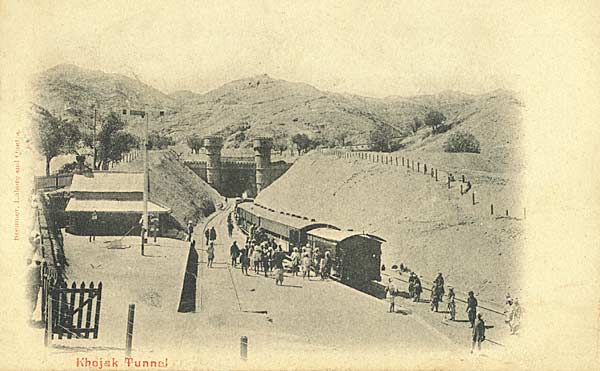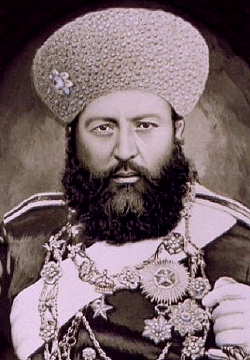The Amir of Afghanistan’s colourful and often-quoted description of British railway expansion towards his country being like a knife in his vitals comes from his autobiography.
having cut a tunnel through the Khojak Hill they were pushing the rail line into my country just like pushing a knife into my vitals
Source: The Life of Abdur Rahman, Amir of Afghanistan, volume 2, page 159

The Khojak Tunnel is on the Chaman Extension Railway, which opened in September 1891 to link Quetta with Chaman on the Afghan frontier. Chaman would have been the starting point for the construction of a British railway to Kandahar, had the military situation required it.
The book The Life of Abdur Rahman, Amir of Afghanistan, G.C.B., G.C.S.I. (John Murray, London, 1900; reprinted in 1980), is nominally the autobiography of the monarch known as the “Iron Amir” who ruled Afghanistan from 1880 to his death on 1 October 1901.
However the introduction to the 1980 reprint by Malcolm E Yapp suggests the book was written by state secretary Sultan Mahomed Khan, who travelled England to study at Christ’s College in Cambridge where he wrote a dissertation on the laws of Afghanistan. Sultan Mahomed Khan corresponded with the Amir while writing the book, but the Amir died before seeing the finished work.

Yapp calls the book “a careful piece of propaganda designed to present the Amir to British readers in the most favourable light”. Meanwhile, in Afghanistan “it was better for the Amir’s reputation that he did not appear as the author.”
Yapp notes that the Amir “was absorbed by the latest mechanical contrivances (he claimed to mend all the watches in Kabul) and had a vast store of miscellaneous items of information.”
He was “a man of depth and complexity. […] On the one hand he murdered his opponents with a relish which bordered on the sadistic and on the other he could spend hours arranging flowers in vases.”